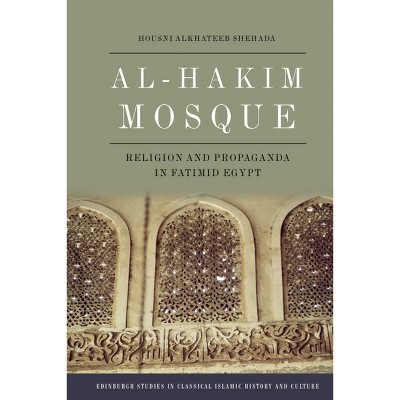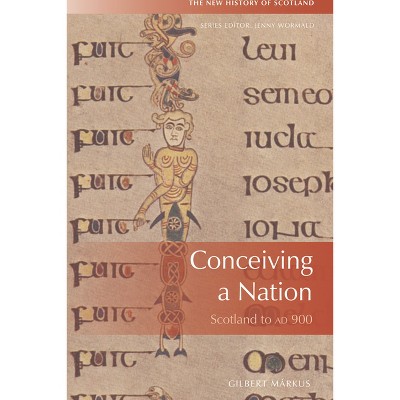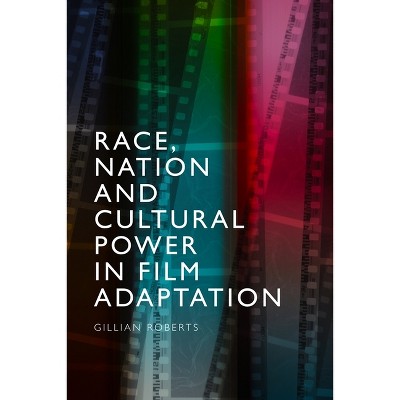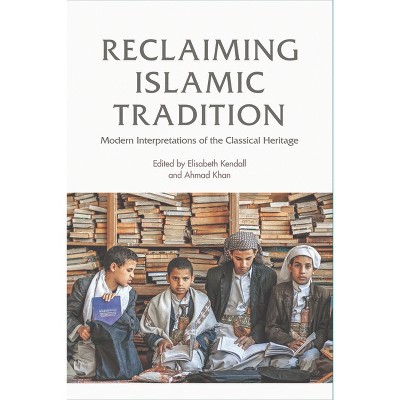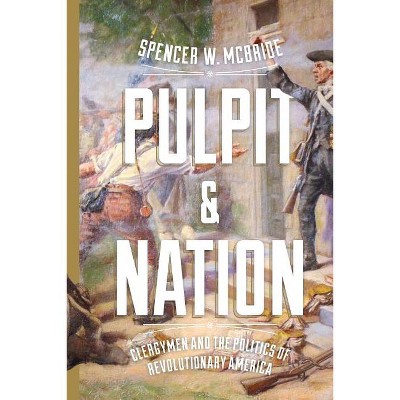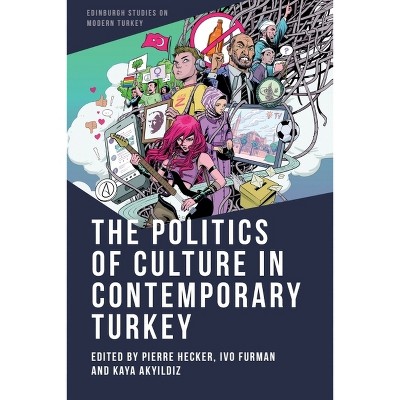About this item
Highlights
- Since the formation of the Republic in 1923, Friday sermons (hutbe) have been an important platform that allows the state to engage and communicate with the Turkish people.
- About the Author: Elisabeth Özdalga is a retired senior researcher, and before that director, of the Swedish Research Institute in Istanbul.
- 304 Pages
- History, Middle East
Description
About the Book
With an all-pervading sermon theme of social, national and political unity, Elisabeth Özdalga explores how long-standing religious rituals are utilised and mobilised in the formation of modern political loyalties and national identities.Book Synopsis
Since the formation of the Republic in 1923, Friday sermons (hutbe) have been an important platform that allows the state to engage and communicate with the Turkish people. Sermon topics vary from religious and ethical issues to matters concerning family, women, health, education, business and the environment. Even if politics, in the name of secularism, has been banned from mosques and sermons, questions of how to be a good citizen and honour the Turkish nation have been of utmost importance. With an all-pervading sermon theme of social, national and political unity, Elisabeth Özdalga explores how long-standing religious rituals are utilised and mobilised in the formation of modern political loyalties and national identities.From the Back Cover
'Through a meticulous examination of the Friday sermons, Elisabeth Özdalga analyses the public role of religion in Turkey - from containment by the secular state to instrumentalisation by the Islamist government. This is a most valuable contribution to our understanding of state-religion configurations in modern Turkey.' Sami Zubaida, Emeritus Professor of Politics and Sociology at Birkbeck, University of London 'In her innovative and timely study, Özdalga shows that it is not so much the rather bland and repetitive contents of the Friday sermon that makes it influential, but the rather the fact of its performance. Attended by over half of the male population, the Friday prayer and sermon form a communal act that plays a key role in installing in the audience "oneness and togetherness" that is the foundation stone of Turkish republican nationalism.' Erik-Jan Zurcher, Emeritus Professor of Turkish Studies, Leiden University A historical and sociological analysis of the role of Friday sermons in the nation building process in modern Turkey Since the formation of the Republic in 1923, Friday sermons (hutbe) have been an important platform that allows the state to engage and communicate with the Turkish people. Sermon topics vary from religious and ethical issues to matters concerning family, women, health, education, business and the environment. Even if politics, in the name of secularism, has been banned from mosques and sermons, questions of how to be a good citizen and honour the Turkish nation have been of utmost importance. With an all-pervading sermon theme of social, national and political unity, Elisabeth Özdalga explores how long-standing religious rituals are utilised and mobilised in the formation of modern political loyalties and national identities. Key Features - Presents a new field of research, which focuses the role of Islamic oratory in the nation building process in modern Turkey - Analyses various forms and contents (including a large number of translations from Turkish to English) of Friday prayer oratory - Highlights how state patronage conducted through a secular political order has controlled religion, but also how an overpowering state has been challenged by various religious groups and institutions - Synthesises three basic analytical dimensions of official Muslim oratory: the religious ritual; political and ideological discourses; and, governmental supervision through the official religious institution Diyanet Elisabeth Özdalga is a retired Senior Researcher and former Director of the Swedish Research Institute in Istanbul. Cover image: Blue Mosque, Sultan Ahmed Mosque, Istanbul, Turkey (c) Look-foto / LOOK-foto Cover design: Andrew McColm [EUP logo] edinburghuniversitypress.com ISBN 978-1-4744-8820-4 BarcodeReview Quotes
Pulpit, Mosque and Nation provides welcome, timely insight into the relationship between this politics of the state and the Friday sermon--unquestionably, its lessons extend far beyond Turkish mosques.--Jeremy F. Walton, University of Rijeka "Journal of Contemporary Religion"
As this study shows, the paradox of Turkey is that it is on the one hand, the most secular state in the Islamic world, and on the other, the country in which Islam is most heavily controlled by the state. The Friday sermon, whose text is determined centrally by the Presidency of Religious Affairs in Ankara, is a key instrument for this control. In her innovative and timely study, Özdalga shows that it is not so much the rather bland and repetitive contents of the Friday sermon that makes it influential, but the rather the fact of its performance. Attended by over half of the male population, the Friday prayer and sermon form a communal act that plays a key role in installing in the audience "oneness and togetherness" that is the foundation stone of Turkish republican nationalism. Combining humanities and social science research, Özdalga makes a convincing case that this symbiosis between secular nation state and religious establishment worked relatively well for over eighty years. She also notes, however, that since 2011 the Islamist regime of the Justice and Development Party has instrumentalised the Presidency of Religious Affairs to extend its authoritarian control over many aspects of social life.
-- "Erik-Jan Zurcher, Emeritus Professor of Turkish Studies, Leiden University"Through a meticulous examination of the Friday sermons, Elisabeth Özdalga analyses the public role of religion in Turkey - from containment by the secular state to instrumentalisation by the Islamist government. This is a most valuable contribution to our understanding of state-religion configurations in modern Turkey.
-- "Dr. Sami Zubaida, Emeritus Professor of Politics and Sociology at Birkbeck, University of London"Elisabeth Ӧzdalga here offers us a rich and original review of the DİB; rather than presenting itself as the last word on the subject, it positively invites further development.--Fabio Salomoni, Koç University "European Journal of Turkish Studies"
About the Author
Elisabeth Özdalga is a retired senior researcher, and before that director, of the Swedish Research Institute in Istanbul. She was professor of sociology at the Middle East University in Ankara 1994-2009 and visiting chair of the Department of Political Science at Bilkent University in Ankara 2011-13. She is the editor of several anthologies, among others Late Ottoman Society (RoutledgeCurzon, 2005), Novel and Nation in the Muslim World (with Daniella Kuzmanovic) (Palgrave 2015), Muslim Preaching in the Middle East and Beyond (with Simon Stjernholm) (Edinburgh University Press, 2020), and author of 'Islamism and Nationalism as Sister Ideologies: Reflections on the Politicization of Islam in a Longue Durée Perspective, ' Middle Eastern Studies, Vol. 45, No. 3, pp. 407-23, May 2009.
Shipping details
Return details
Trending Non-Fiction







